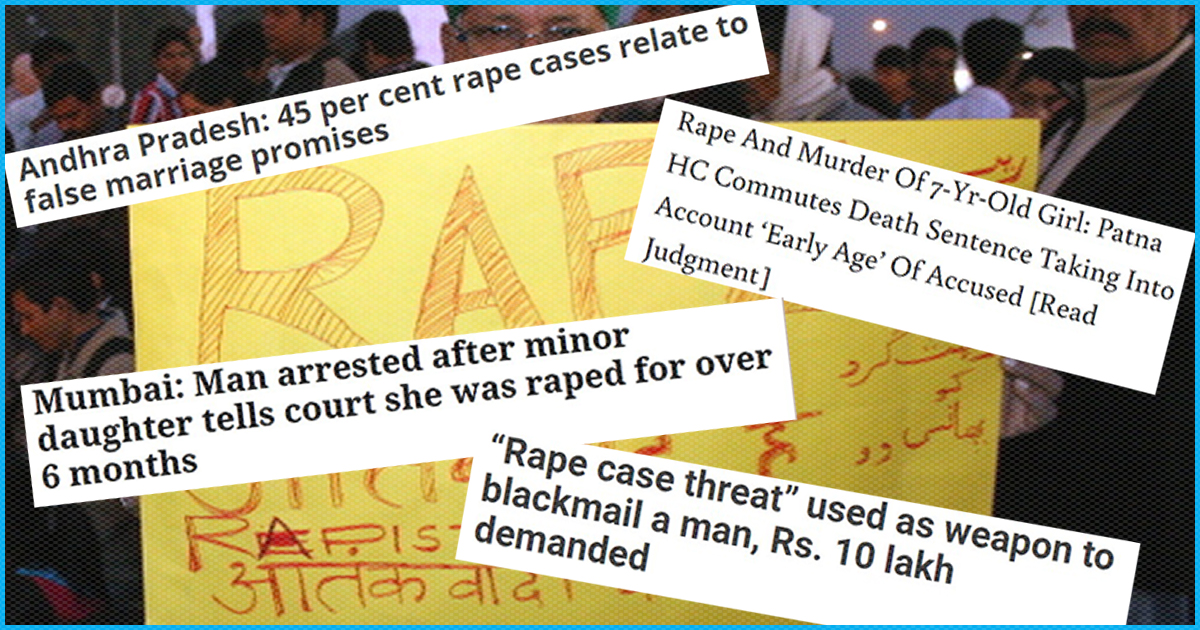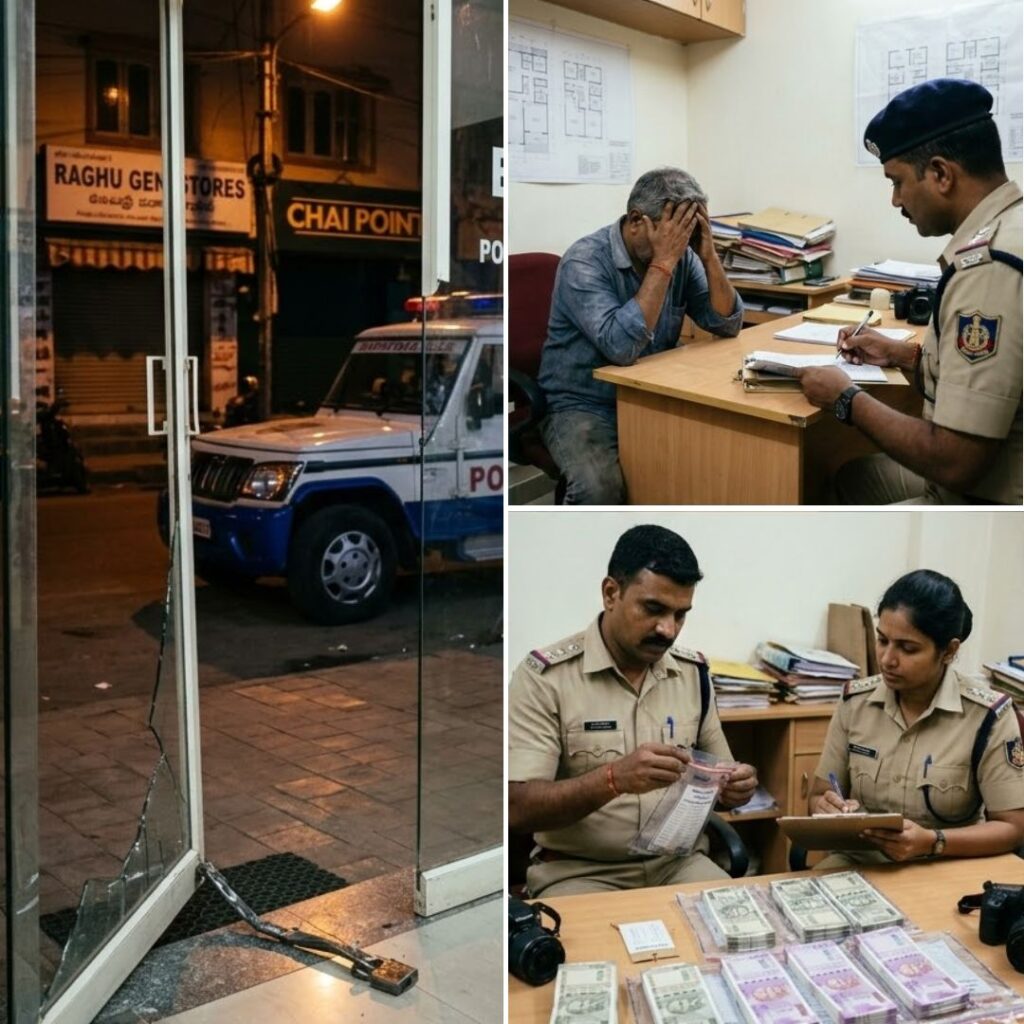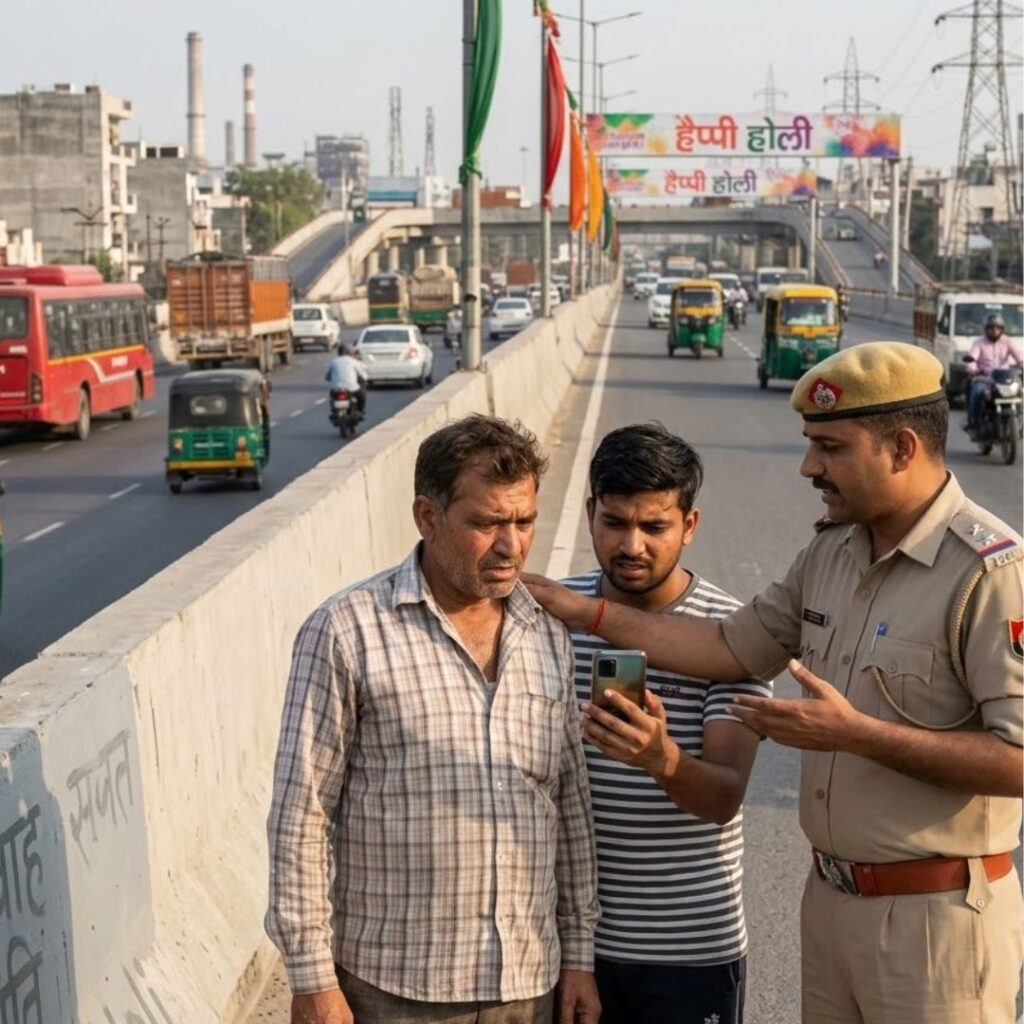The word rape originates from the Latin word rapere, which meant “to snatch, to grab, to carry off”. In Roman law, raptus (or raptio) primarily meant kidnapping or abduction; sexual violation was a secondary issue. Essentially in the ancient world, the offence of rape was divided into two aspects, the theft of “property” from the husband/father, and the sexual abuse. Wherein the female was considered as the “property”.
Rape and IPC:
The offence of rape has long been considered a crime under the ambit of Indian Law, by virtue of the Indian Penal Code, 1860 (“IPC”). Section 375 defines Rape as:
A man is said to commit “rape” who, except in the case hereinafter excepted, has sexual intercourse with a woman under circumstances falling under any of the six following descriptions:
(First) — Against her will.
(Secondly) — Without her consent.
(Thirdly) — With her consent, when her consent has been obtained by putting her or any person in whom she is interested in fear of death or of hurt.
(Fourthly) — With her consent, when the man knows that he is not her husband and that her consent is given because she believes that he is another man to whom she is or believes herself to be lawfully married.
(Fifthly) — With her consent, when, at the time of giving such consent, because of unsoundness of mind or intoxication or the administration by him personally or through another of any stupefying or unwholesome substance, she is unable to understand the nature and consequences of that to which she gives consent.
(Sixthly) — With or without her consent, when she is under sixteen years of age. Explanation — Penetration is sufficient to constitute the sexual intercourse necessary to the offence of rape.
(Exception) — Sexual intercourse by a man with his wife, the wife not being under fifteen years of age [the word “fifteen” was effectively replaced by the word “eighteen”, follow the Supreme Court’s judgement in 2017], is not rape
As per the provisions, before 2017, sexual intercourse, even without the consent of a man with his wife, even if the wife was a minor, but above the age of 15, would not constitute as rape. In 2017, a Division Bench of the Supreme Court of India, comprising Justices Madan B Lokur and Deepak Gupta in the matter of Independent Thought (Petitioners) and The Child Rights Trust (Intervener) vs. Union of India and Others, read down Section 375 of IPC and held that sexual intercourse with the minor girl, even if the minor is married and the accused is the husband, would constitute the offence of rape. The Bench found no reason why a married minor female of the age 16 – 18 should not have protection against unwanted sexual intercourse against their husbands, merely by their marriage. The Bench did not comment on forcible sexual relations between an adult husband and an adult wife. The Delhi High Court is still deliberating the issue of marital rape of an adult married woman by her husband.
What is Statutory Rape?
Where normal Rape, involves the element of lack of consent, or consent obtained through fraud or force, Statutory Rape is different in a sense, where the consent is not considered to be valid. This offence is created to save the exploitation of the minor by the adults. In this kind of rape, the adult will get punished if he had any kind of physical interaction with a woman/girl, in the age of 18 or below, no matter if she has voluntarily participated in the act or not. The consent of the minor is immaterial and will not be considered any defence to the accused.
The age of consent in India is 18 years old. The age of consent is the minimum age at which an individual is considered legally old enough to consent to participate in sexual activity. The individual within 17 years of age or younger, will not be considered to be legally old enough to give their consent to participate in any kind of sexual activity. So if a male and a female, both of the age 17 enter into voluntary intercourse, the male may be arrested and charged with rape. Though generally in such cases, where there is no actual exploitation of the minor, taking into consideration the statement of the minor female, the accused are often let off.
Misuse of Statutory Rape by Families:
Often when young men and women fall in love, elope and run away from their families, the parents of the girl file a rape case against the boy to deter the couple from getting married. As statutory rape is considered a very serious offence, generally the Police act immediately. But in such cases, if the female stands her ground and explains to the court that she had left on her own accord, the Courts generally let off the male.
Criminal Law (Amendment) Act 2013:
In 2012, Delhi witnessed a gang rape, which widely referred to as the Nirbhaya rape case, shook the conscience of the entire Country and lead to the introduction of tougher laws in the form of the Criminal Law (Amendment) Act, 2013. The minimum sentence was changed from seven years to ten years. In cases that led to the death of the victim or the victim being left in a vegetative state, the minimum sentence was increased to twenty years.
Since one of the accused in the case was a juvenile at that time, he was tried as a minor and had escaped the full brunt of the law despite being 17 years old. To avoid such cases in future, the age for being tried as an adult for violent crimes like rape and murder was changed from 18 to 16. The Legislation upheld that if children within the age of 16 to 18 undertake gruesome and violent murders and rapes, they deserved to be tried and punished as adults.
Sexual Offenses against Minors:
Till 2012, only “Statutory Rape” provided protection to minor victims against rape and sexual exploitation. As from 2001 to 2011, crimes of sexual nature against minors kept on drastically increasing, the Government with the help of NGO’s realized that the current IPC was inadequate to deal with the problem. Children were more often than not sexually assaulted by their family or people they knew and left traumatized. Such children, would not be able to follow the strict procedure under the Criminal Procedure Code. Hence the Protection of Children from Sexual Offences Act (POCSO Act), 2012 was created to protect minors from sexual exploitation, and easy the process of prosecution via the creation of special courts, with trained personals to take care of the minors mental and emotional state during the trail.
In 2018, after multiple instances of abuse of children, including in Kathua and Unnao rape cases, widespread outrage saw the introduction of the Criminal Law (Amendment) Ordinance, 2018. The Ordinance, while increasing the maximum punishment to the death penalty, came with its problems, including discrimination between male and female minor victims as it was rushed without proper application of mind. The Ordinance is currently under challenge before the Delhi High Court, in a petition filed by the NGO Aapna Aap Collective.
Reporting of Offence:
Generally, under the law, offences once committed, must be reported immediately, or as soon as the offence has come to the knowledge of the person reporting. The standard limitation policy is set under Section 468 of the Criminal Procedure Code, 1973. As per this section, if the maximum punishment is merely a fine, then the offence has to be reported within six months. If the offence is punishable with imprisonment of not more than one year, the offence has to be reported within one year of it taking place. If an offence is punishable for a term more than one year but less than three years or less, the crime can be reported up too three years later. For an offence whose punishment is greater than three years imprisonment, for example, rape, murder etc., the crimes can be reported even after three years of the action taking place. Some important factors to be taken into account for calculating the time is that in case the accused is on the run, the time till the accused is caught is not considered for calculation of limitation period. Also, in case of sexual assault, if a victim is a minor, the victim can file the case once they are 18. While criminal cases can be legally filed for major offences even after years of the crimes, both the Court and the Defence can question the delay, which has to be explained.
Also Read: Good To Know : How To Deal With Sexual Harassment At Work Place?











